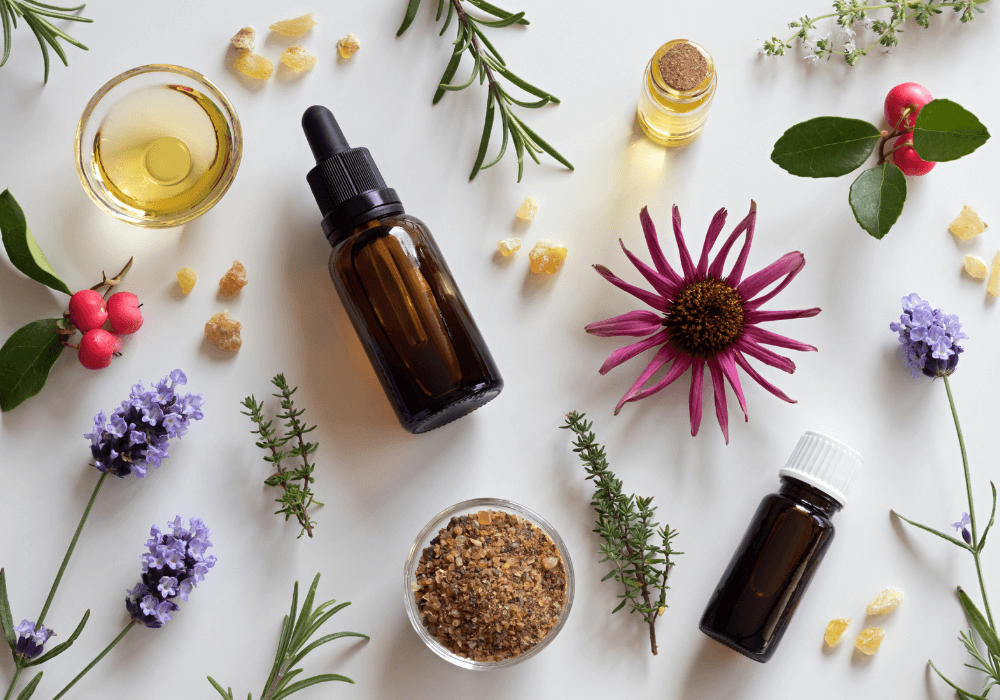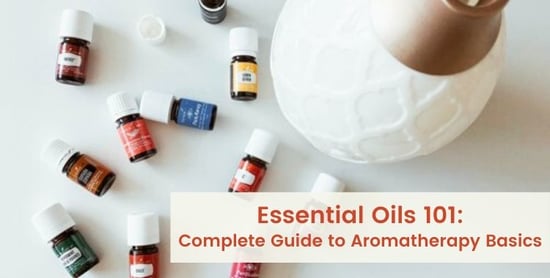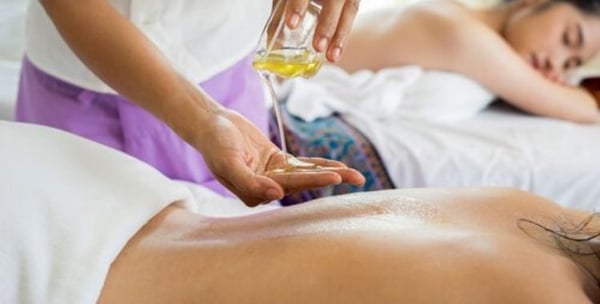
Download this FREE guide to learn more about the legal rules & regulations for alternative services.
Essential oils have many benefits for health and wellness, such as relieving stress and anxiety, uplifting mood and boosting energy. Knowing this, they have been continuing to grow in popularity among both practitioners and their clients.
But what most certified holistic practitioners don’t realize is that by using essential oils in their services, they could be putting their entire livelihood at risk. The same goes for state-licensed massage therapists, chiropractors and others, who provide holistic services that fall outside the scope of their license.
A defendable legal basis is necessary for incorporating the use of essential oils in your services.
Essential oils have many benefits for health and wellness, such as relieving stress and anxiety, uplifting mood and boosting energy. They can also be used to complement and even augment the benefits of other holistic health services such as massage, reiki, acupuncture, reflexology and yoga.
Because of their potency and cumulative effects, the use of essential oils should be taken seriously and practiced responsibly with the utmost care and highest-quality oils to prevent unwanted side effects.
Below is a basic overview on essential oils and some of their specific uses. Check out our complete Essential Oils 101 Guide to learn how to incorporate them into your holistic health services and more.

An essential oil is a volatile liquid distilled from the roots, seeds, stems, bark, fruits, flowers, resin, or leaves of plants. These aromatic oils can be bottled and used for a variety of health-related purposes. Each oil is composed of complex chemical structures with hundreds of chemical constituents. Studies are conducted to analyze their anti-bacterial and anti-fungal properties, as well as how they interact with the body’s systems.
There are hundreds of essential oils on the market today, and each has a variety of uses and applications. Research into specific essential oils and compounds is ongoing. A licensed aromatherapist or essential oils coach can educate about which oils are appropriate to use, given an individual’s background and needs.
In addition to single oils, essential oils can be combined to produce a desired effect. They can either be mixed in the moment or can come in pre-packaged blends. Vegetable oils such as olive oil, coconut, almond oil, or jojoba can be used as carriers to dilute essential oils.
Below are some of the most helpful essential oils for common issues.
In addition to aromatherapists and essential oil coaches, many other holistic practitioners are finding that therapeutic-grade essential oils can complement their wellness services and provide additional benefits for their clients. They are growing in popularity across several holistic modalities, but especially for massage therapy, reiki, chiropractic and reflexology, among others.
Essential oils can be incorporated into holistic health offerings to promote relaxation and well-being through various applications such as massage directly onto the skin with a carrier oil, with a water-based diffuser, inhalation from the palms of the hands, or passive diffusion with a porous aroma stone made from volcanic rock or natural reed diffuser. Each oil or blend should be specifically selected for its beneficial properties.
What many trained and certified holistic practitioners don’t know is that by using essential oils with clients without a defendable legal basis, they are putting their entire livelihood at risk. Whether you’re a certified aromatherapist, essential oil coach, reiki master, massage therapist, chiropractor or any other kind of holistic practitioner, a defendable legal basis is necessary for incorporating the use of essential oils in your services.
When used safely and with a defendable legal basis, high-quality essential oils can augment your holistic health offering, adding a natural, sensorial dimension to your sessions that your clients will appreciate.
But before you reach for that bottle of lavender or eucalyptus oil, it is very important to protect your services from state regulatory board crackdowns.
You can read the full article here to get all your questions answered about using essential oils in your holistic services — safely and legally.
Join the list to receive holistic health tips, advice & community updates sent straight to your email inbox.
If you’re a state-licensed chiropractor or massage therapist, you may be thinking about incorporating essential oils or aromatherapy into your practice.
Today, many massage and chiropractor clients are seeking non-pharmaceutical alternatives to help the body heal itself naturally. Essential oils fulfill this role by making the benefits of medicinal plants accessible and applicable for a variety of health issues and overall well-being.
Essential oils make a lot of sense for massage and chiropractic, both for short-term calming effects and symptom relief during a session, and long-term combined benefits over time. The application of carefully selected, high-quality aromatic oils on the skin can assist with spinal adjustments that restore proper biochemical balance, neural function and optimal nerve transmission.
Many licensed massage therapists and chiropractors find themselves in the difficult position of being licensed in their state, but not for holistic services — such as aromatherapy massage — that fall outside of the scope of their state-licensed practice.
State regulatory boards are on the lookout for practitioners who provide services that are not covered by their existing license. As a massage therapist or chiropractor, if you incorporate essential oils or aromatherapy into your practice without a defendable legal basis, you would be at risk of losing your livelihood and having your state massage therapist or chiropractor license revoked.

To protect yourself and your business from legal problems, you need a defendable legal basis that will allow you to provide holistic services that are not explicitly covered by your existing state license.
As a massage therapist or chiropractor, the Professional Wellness Alliance (PWA) can help you provide your clients with the benefits of essential oils and aromatherapy, while protecting you and your livelihood from legal and financial devastation. By joining the PWA Community, you become a part of the movement for holistic health and protect yourself with a defendable legal basis through licensure.
With 20+ years of experience fighting and advocating for the rights of holistic health practitioners, the PWA can help support you as you take your massage therapy and chiropractic offering to the next level with high-quality essential oils. You can incorporate essential oils into your offerings within a safe, legal environment.
As a massage therapist, you might be interested in adding or may already be incorporating holistic therapies such as raindrop therapy and reiki into your existing state-licensed practice.
The Raindrop Technique is a proprietary technique of the Young Living™ essential oil company. It was developed in the 1980s by Young Living CEO and Founder Gary Young, who says the practice is inspired by a Native American ritual within the Lakota tradition.
Raindrop therapy combines massage, reflexology, and aromatherapy through the layered application of specific essential oils and blends to the feet and back. The sequence involves light massage techniques such as feather stroking and activates reflexology pressure points.
Reiki is a Japanese energy healing art that is gaining acceptance in integrative health and increasing in popularity across the country. Energy healing and “laying of hands” have been used throughout the world for thousands of years to promote physical, mental, and spiritual balance. Reiki is considered a non-invasive technique that involves lightly placing the hands in certain positions on the body to channel healing energy. It can also be experienced without physical touch.
Although massage and reiki are two different modalities, the two have been combined into a complementary therapy known as reiki massage. Because reiki includes light placement of hands without pressure, it can be a pleasant and harmonizing complement to almost any type of massage.
It may not be something that you considered much until now, but the vast majority of holistic health practitioners are at-risk of costly legal troubles — without even knowing it.
This short, 3-minute quiz will help you determine if you’re operating your holistic health business legally and, if not, how you can ensure it is legal moving forward.